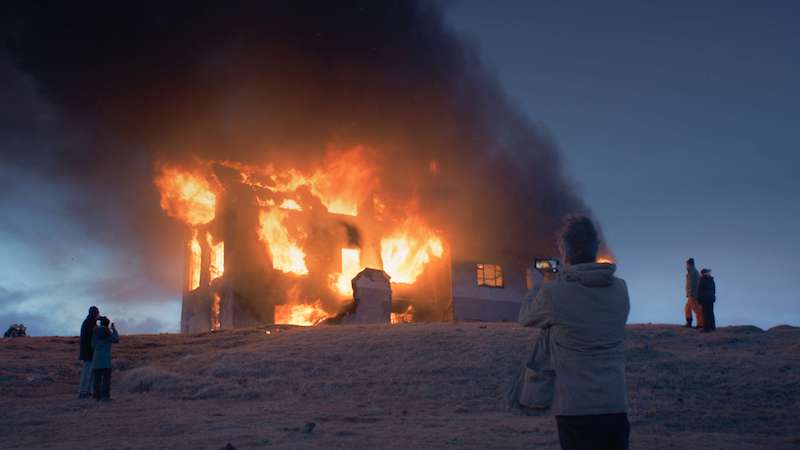QUICK SNAP: LIVE FROM TALLINN
One of two hungry mice becomes trapped inside a large, circular cheese in Mouse House (Timon Leder, Slovenia/Croatia, 9 mins) and is able to gorge himself inside while his companion struggles unsuccessfully, stomach rumbling, to transport the cheese. Meanwhile, a cat prowls around. The cat is peripheral: this is not so much a game of cat and mouse as of mouse and cheese.
The deceptively simple plot of The Turnip (Piret Sigus/Silja Saarepuu, Estonia, 7 mins) involves the planting and the subsequent, less than successful pulling up of that vegetable. The human villagers are represented, often as close ups of feet, in relief, cut-out animation, that is to say somewhere between 2D and 3D, a technique heightened in the lengthy sequences of centipedes and other bugs under the earth interacting with the turnip prior to its extraction.
The lively visuals of Away From Home (Brunella De Cola, Italy, 6 mins) convey the idea of Africans wanting it to snow in Africa.
Letters From The Edge Of The Forest (Jelena Droz, Croatia, 12 mins) adopts the time-worn setting of a bunch of forest animals to question such prevalent values as selfishness and greed. When a squirrel proposes to write a letter, a visit to local owl sees the latter make it very clear that he, and only he, can perform this service. But eventually, he is talked round to the idea that if he were able to help other animals write letters free of charge, it would be a good thing for everybody.
The anthropomorphised crocodile of Lost Brain (Isabelle Favez, Switzerland, 7 mins) gets ill and stays home after getting caught in the rain outside. Thus, her world is turned into black and white with areas covered by inkblots. Suddenly, she is no longer able to find the key to open her front door. After venturing into such curiously satisfying visual conceits as a lampshade becoming a toaster, a tear falls on a piano key and she starts to compose music, which turns out to be part of her route out of her predicament. She is later seen in a park where trees resemble musical notes.
The second of three programmes of Kids Animation shorts plays in the Tallinn Black Nights Film Festival.









